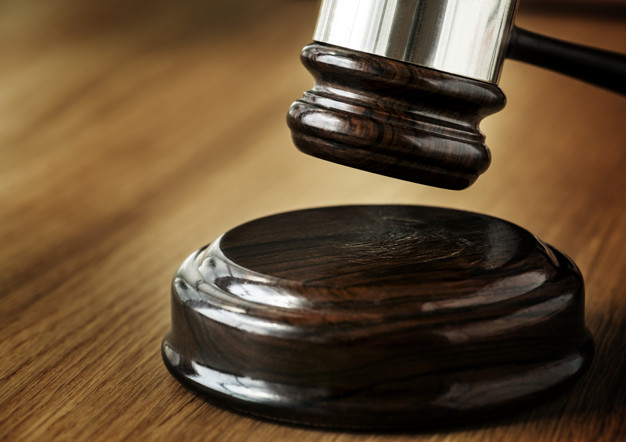In landmark judgement, Federal Court rules political parties cannot sue individuals for defamation

PUTRAJAYA (March 4): In a landmark judgement, a seven-member Federal Court bench unanimously ruled today that political parties cannot sue an individual for defamation.
This follows the bench led by Court of Appeal president Tan Sri Rohana Yusuf today allowing the appeal by Kepong member of Parliament (MP) Lim Lip Eng to strike out the suit by Datuk Seri Ong Ka Chuan, the then-MCA secretary-general who sued on behalf of the party following statements made by the DAP representative.
Lim made allegations pertaining to the government and public funds allocation for National Type Chinese Schools (SJKC) at a press conference in Parliament on March 15, 2017.
Justice Rohana said they would answer the question posed to the apex court in the negative.
"We agree with the submissions by the appellant. We set aside the order of the High Court and the Court of Appeal. The suit by the respondent (Ong) is struck out," she said.
Sitting with her were Chief Judge of Malaya Tan Sri Azahar Mohamed and Federal Court judges Datuk P Nalini, Puan Sri Zaleha Yusof, Datuk Seri Hasnah Mohammed Hashim, Datuk Mary Lim Thiam Suan, and Datuk Harminder Singh Dhaliwal.
The bench made no order as to costs due to the public nature of the application. Justice Rohana indicated the bench would also write the grounds for judgement later.
Lim was represented by counsels Datuk Seri Gopal Sri Ram and Guok Ngek Seong, while lawyers Ng Chew Hor, Ang Boon Heng and Lim Rue Chee appeared for Ong.
The single legal question posed before the court was whether a political party can maintain a suit for defamation in light of the decisions in Goldsmith v Bhoyrul (1998) and Rajagopal v Jayalalitha (2006), which Justice Rohana had ruled in the negative.
MCA sought RM100 million in damages
MCA as the plaintiff filed the suit on July 17, 2017 through Ong and named Lim as the sole defendant, seeking RM100 million in damages.
The party claimed the DAP lawmaker had issued a defamatory statement at the Parliament lobby on March 15, 2017 which was later published in various print and digital media.
The party claimed that the defamatory words, among others, implied that the MCA had used the government funds allocated for the schools and was involved in corruption, and had tarnished its reputation.
Lim applied to strike out the suit on the grounds that MCA, as a political party, had no legal standing to sue an individual, citing English case law Goldsmith v Bhoyrul (1998), which provided that political parties cannot be claimants in defamation suits.
The Kepong MP in his defence said as a people's representative, he was entitled to question issues of public interest and seek answers on issues concerning the people.
The High Court had dismissed Lim's striking out application and the decision was upheld by the Court of Appeal, resulting in his appeal at the Federal Court. On March 12 last year, a three-member bench led by Justice Azahar granted the lawmaker leave to hear his appeal, leading to today's proceedings.
Societies can file suit or be sued, but not for defamation
Sri Ram in his submissions today said Section 9C of the Societies Act 1966 stipulates that a society may sue or be sued but this does not apply to them instituting action on defamation.
"This provision does not mean that it (societies) has a legal standing to institute defamation action. The tort of defamation is to protect the reputation of a natural person and a fictional person created by the Companies Act. It is not for societies or political parties," he added.
The former Federal Court judge also asked the apex court to look into its previous judgement in the case of another DAP lawmaker, Chong Chieng Jien, who was sued by the Sarawak state government.
The apex court had ruled that the state government can sue citing Section 3 of the Government Proceedings Act 1956 (GPA).
"That decision in Chong's case did not take into account that the GPA was a pre-Merdeka legislation that did not take into consideration freedom of speech as enshrined in our Federal Constitution. Furthermore, Section 3 of the GPA does not confer the cause of action for the government under tort of defamation," he added.
Meanwhile, Ng — who appeared for MCA's Ong — maintained that the apex court's decision in Chong's case was rightly decided as freedom of speech is not absolute.
He further claimed that the United States recognised the perils of freedom of speech as touched by a speech of former United States president Barack Obama.
"We should not be carried away and should remain cautious of the destructive nature of freedom of speech in a multiracial and multireligious society like Malaysia. We say that Chong's case is rightly decided and Section 3 of the GPA does not restrict the government from suing for defamation.
"Political parties also have a reputation to be protected," he said.
Sri Ram replied that Malaysia is not the 51st state of the United States and that Section 9C of the Societies Act merely gives societies or political parties the locus standi (legal standing) to file suits or be sued, but does not provide for a cause of action, especially for defamation.
Get the latest news @ www.EdgeProp.my
Subscribe to our Telegram channel for the latest stories and updates
Follow Us
Follow our channels to receive property news updates 24/7 round the clock.
Telegram

Latest publications
Malaysia's Most
Loved Property App
The only property app you need. More than 200,000 sale/rent listings and daily property news.
